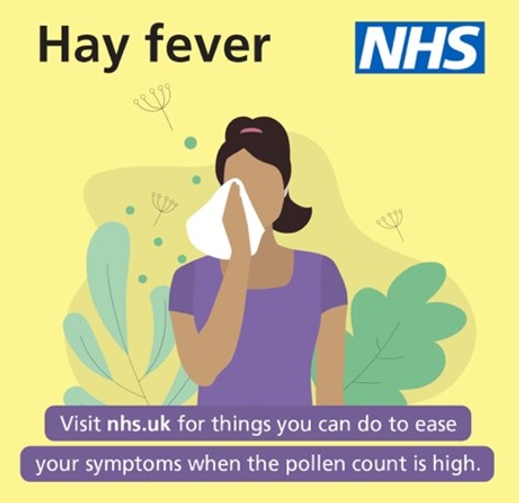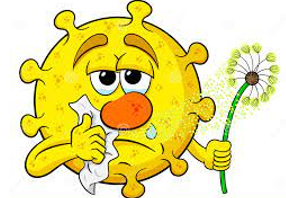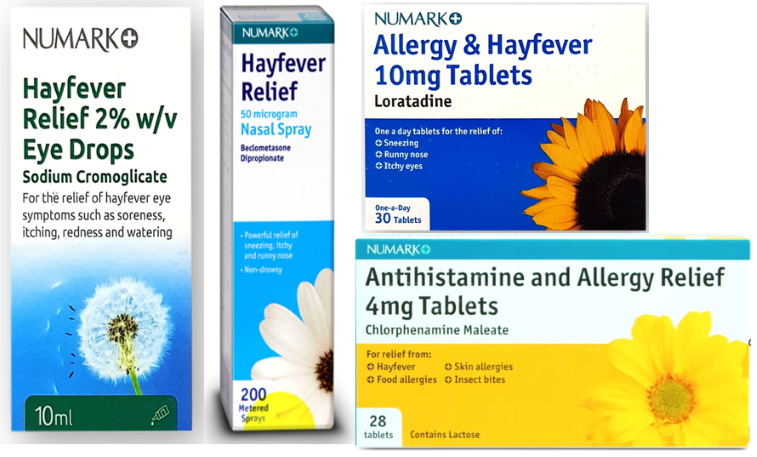Hay fever
Hay fever is an allergic reaction to pollen, typically when it comes into contact with your mouth, nose, eyes and throat. Pollen is a fine powder from plants.
According to NHS UK NHS UK Hay fever "Hay fever is usually worse between late March and September, especially when it's warm, humid and windy. This is when the pollen count is at its highest".
Symptoms of hay fever may include:
- Sneezing and coughing
- A runny or blocked nose
- Itchy, red or watery eyes
- Itchy throat, mouth, nose and ears
- Loss of smell
- Pain around your temples and forehead
- Headache
- Earache
- Feeling tired
- A tight feeling in your chest
- Shortage of breath
- Wheeze and cough
There's currently no cure for hay fever and you cannot prevent it but you can do things to ease your symptoms when the pollen count is high for example:
- Put Vaseline around your nostrils to trap pollen
- Wear wraparound sunglasses to stop pollen getting into your eyes
- Shower and change your clothes after you have been outside to wash pollen off
- Stay indoors whenever possible
- Keep windows and doors shut as much as possible
- Vacuum regularly and dust with a damp cloth
- Buy a pollen filter for the air vents in your car and a vacuum cleaner with a HEPA filter
- Try to stay at home and avoid contact with other people if you have a high temperature or you do not feel well enough to do your normal activities
- Do not cut grass or walk on grass
- Do not spend too much time outside
- Do not keep fresh flowers in the house
- Do not smoke or be around smoke – it makes your symptoms worse
- Do not dry clothes outside – they can catch pollen
- Do not let pets into the house if possible – they can carry pollen indoors
The pharmacy can give advice and suggest the best treatments, like antihistamine drops, tablets or nasal sprays to help with:
- Itchy and watery eyes and sneezing
- A blocked nose



